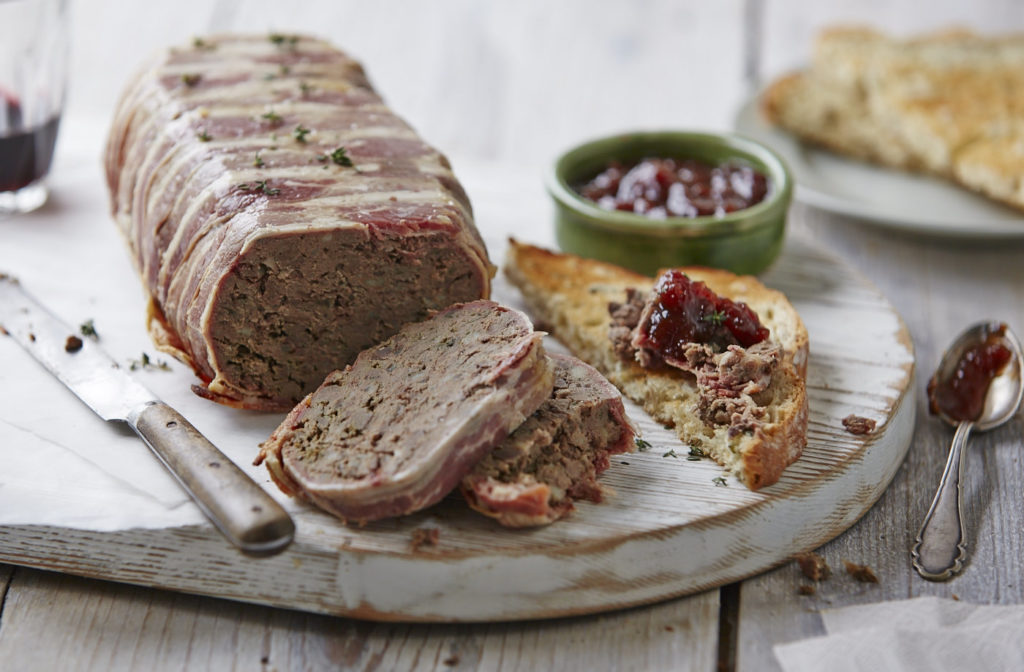 Eat liver. At least once or twice a week if you can. If you don’t like liver, try to experiment with interesting recipes, such as the one pictured above.
Eat liver. At least once or twice a week if you can. If you don’t like liver, try to experiment with interesting recipes, such as the one pictured above.
We are going to look at two common questions with regard to liver:
- Why should we eat liver?
- What kind of liver is best?
We’ll give you some quick answers, and then look a bit more deeply into the questions.
Answer #1: Liver is simply the most nutritious food that you can eat. If you want to use the term ‘superfood,’ this is the #1 superfood. In general, organ meats are the best thing you can eat, and each organ has its own special nutrients, so be sure to eat organ meats as often as you can. If nothing else, at least eat some liver, as it has an amazing array of synergistic nutrients.
Answer #2: Eating any kind of liver is better than no liver at all. Cow, pig, chicken, duck, goose, fish, etc., are all great, so choose whichever one you are most likely to eat. Taste, availability, etc., are more important than the type of animal. Certainly liver that comes from organic pasture raised animals is best. But if you cannot get organic, you should still eat liver. The idea that liver holds toxins is a myth, so do not worry about it.
Let’s move on to the longer answers, starting with what kind of liver is best. We always want the cleanest food we can get – and we sometimes rely on labels such as ‘organic’ to give us confidence that our food is clean. But the organic label is not a guarantee that our food is clean, so do not view ‘organic’ as required; especially when it comes to liver. Why do I say that?
- The USDA certified organic label still allows hundreds of agrochemicals (pesticides, herbicides, hormones, vaccines, etc.) to be used.
- Many smaller farms have truly organic meats but cannot afford the ‘USDA’ organic labels. Knowing your supplier is more important than the label.
- Animals retain less agrochemicals than plants. This is because animals have many active biological systems to dispatch the chemicals in various ways before we consume them. Plants tend to absorb and carry much more chemical residue to our table. This is a very general statement, and there are many variables that affect the specific differences. Key among them is the diet of the animal…
- Pastured animals trump all else; organic or otherwise. Of course organic pastured is best. But the key point is the animal’s diet, because a pastured animal will have a much more powerful immune system, detox system, etc., that can better help it with self cleansing of the agrochemicals. Furthermore, meat from a pastured animal has much higher nutrition than a non-pastured animal.
I am not encouraging you to eat ‘bad’ meat. You should still try to get the best quality liver that you can get, because a pastured liver can have many times the nutrition of a non-pastured liver. Quality food from trusted small farmers is well worth any extra price, as it is more cost effective in the long run. Here is a nice summary from a Weston A. Price article:
“Ideally, purchase liver from animals that have enjoyed their lives on chemical-free pasture. The second best choice is organic chicken, beef, or calf liver. Third choice, non-organic calf liver, since these younger animals typically spend the first months of their lives on pasture. The amount of time on pasture varies from ranch to ranch, so do some investigative digging. Avoid livers from conventionally feed-lot raised chickens, hogs or cattle.”
And getting back to the ‘why eat liver’ question, the answer is nutrition. Again quoting that same article:
“Liver from poultry (goose, duck, turkey or chicken), fish, cow, lamb, game and pig is recognized the world over as a superfood. All liver is rich in iron and other minerals, choline, and B vitamins, especially all-important B6 and B12. Liver from ruminant animals (cow, lamb and game) is our best food source of vitamin A; pig liver is loaded with vitamin D; liver from poultry contains about half the vitamin A as beef or lamb liver, but may be the best of all the livers with its nice balance of vitamins A, D and K2.”
There is a lot more that can be said about liver, so check the link above if you need more convincing. A few final comments to help you on your road to eating liver…
Cook your liver lightly, as it doesn’t take long to cook. And cook it in a healthy oil, such as lard, tallow, coconut oil, butter, etc. Liver has fat soluble vitamins – A, D, K2, E, and they require fat to be absorbed, so eating them with a healthy fat is important.
Enjoy.








